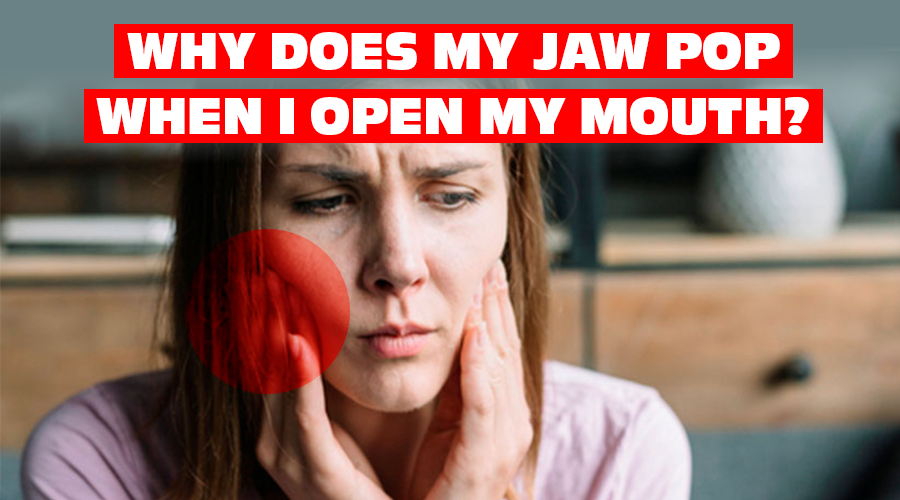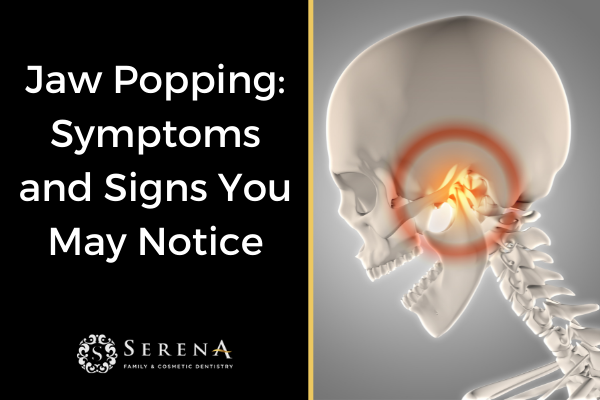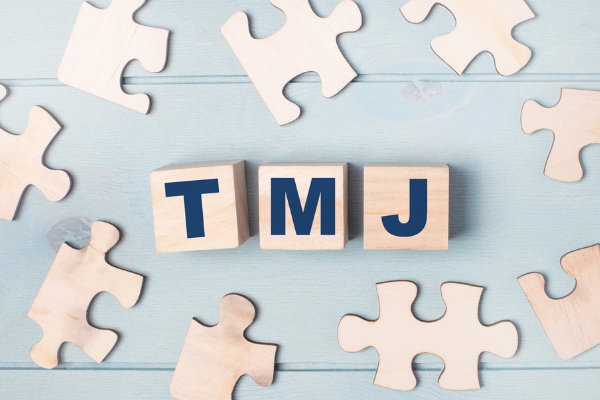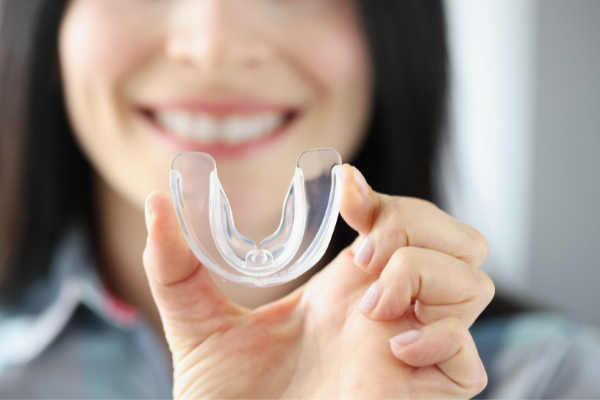Your day was going fine until you grabbed a bite of your sandwich, and now you hear a crackling sound coming from your jaw. It might hurt or not, but now you have to deal with jaw popping.
The truth is that it really shouldn’t even be an issue unless it hurts or causes your jaw stiffness. However, it would help if you still learned where it is coming from and how you can make it stop.
What Are The Symptoms?
First, let’s see how many boxes do you check. It is important to identify the signs early to know if you’re dealing with something a bit more severe. Here are some of the common symptoms:
- Your neck aches
- It’s hard to eat
- Headaches
- Toothaches
- Your jaw feels tender
- Your jaw locks open or closed position
- Earaches
If any of these sound familiar, there’s a chance you could be dealing with a Temporomandibular Joint Disorder.
What Is a Temporomandibular Joint Disorder?
Let’s begin by clarifying that the temporomandibular joint is the connector that unites your jaw to your temporal bones, which you can find in front of each ear. It’s what allows you to talk, chew, and yawn by enabling you to move your jaw up and down and side to side.
Temporomandibular disorders are problems with your jaw and the muscles in your face that support it. This condition is quite frequent in adults.
And the symptoms we mentioned above might originate from different causes.
When a TMD develops, it means that one or both joints have an imbalance. By the time you begin feeling pain and start hearing a popping sound, there is probably a physical abnormality already going on, such as damaged cartilage.
It often not that easy to determine a specific cause. That’s why it’s necessary to consult a specialist to reduce the possibilities and determine the most effective treatment plan.
What Are The Causes of TMD?
It’s often difficult to pinpoint the exact source of TMJ disorder. There’s a number of things that could be causing your discomfort, among which are:
1.- Teeth grinding: clenching your teeth puts a lot of pressure on your temporomandibular joint. It is often referred to as bruxism, and it happens when you are under a lot of stress or anxiety. Some people do it during the day without noticing, and others do it in their sleep. Missing, crooked teeth, and sleep apnea are also common causes of teeth grinding.
2.- Arthritis: your joint may stop moving as well as it used to as a result of this inflammatory or degenerative joint problem. Your jaw can get affected by arthritis, whether it’s psoriatic, rheumatoid, or osteoarthritis. Luckily, it is not that common for arthritis to develop in your jaw.
3.- Fibromyalgia: or also known as irritable bowel syndrome, is a condition marked by widespread musculoskeletal pain, as well as fatigue, sleep, memory loss, and mood problems. This condition can aggravate or overlap with TMD pain.
4.- Teeth malocclusion: another common name for malocclusion is overbite or underbite. It causes the jaw and mouth’s misalignment, which can lead to it popping or clicking. You could also hear some ringing in your ear. Besides, this condition can even lead to teeth grinding and clenching.
5.- Cheek biting: some people believe that cheek biting, like nail-biting, is harmless practice. Even though it appears to be a habit with no consequences, it could be a sign of an obsessive-compulsive disorder that comes from stress and anxiety.
It’s important to have in mind that you will likely have pain and discomfort if your jaw popping comes from one of the issues above.
On the other hand, if your jaw is popping and there’s no pain, it might not be because one or both of your articular discs are worn or abnormally formed, but not to the point of causing pain. In these cases, it’s not really necessary to seek help, but you should always pay attention to your symptoms.
How to Relieve Jaw Popping?
It is, of course, essential to treat it, and when visiting a professional, they might share with you some pain-relieving home remedies to try for your jaw popping. These are a few you can try:
Packs of heat and ice
Apply an ice pack to the jaw and hold it there for about 10 to 15 minutes. Then, get a heat pack and apply it for 5 to 10 minutes as well. Repeat this alternating therapy several times a day until you feel relief and the pain is gone.
Exercising your jaw muscles
Try to open your mouth as wide as you can comfortably with the tip of your tongue on the roof of your mouth. You can stay in this position for 5 to 10 seconds only. Then, move your jaw in and out as far as it can go, but try not to force it. Hold the position for another 5 to 10 seconds.
Make use of stress management techniques
Stress can be the source of clenching of the teeth by tightening your neck, shoulder, and jaw muscles. Try some physical activity to release some tension or deep breathing exercises to relax these muscles throughout the day.
Watch out for crunchy food
When eating, take tiny bites and stay away as much as you can from hard or crunchy foods. Crunchy meals irritate your jaw, so limit your intake to soft, easy-to-chew items. Take little bites and avoid expanding your mouth too wide when eating.
What Should You Do If Home Remedies Aren’t Enough?
If the pain and discomfort don’t stop, you could need professional assistance. Of course, depending on the reason for your jaw cracking or your dentist can recommend the following treatment:
Mouthpieces: in order to prevent or manage teeth grinding, your dentist can recommend the use of a splint or nightguard. Besides, this dental device can also be helpful to correct a malocclusion.
Ultrasound: this applies heat to the joint and can help to enhance jaw mobility and relieve pain.
Injections for pain relief: getting injections into trigger points may provide relief from jaw discomfort for those who suffer from myofascial pain syndrome.
Medication: your doctor or dentist may prescript you high doses of NSAIDs, muscle relaxants, anti-anxiety medications, or antidepressants to treat your TMD.
If you’re looking for a dentist who can help you treat the consequences of a jaw popping, try giving us a call. Dr. Serena Kurt is an experienced San Diego Dentist who will guide you to the best treatment.
Fill out the contact form to get started and let an expert take care of your oral health.






Leave a Reply